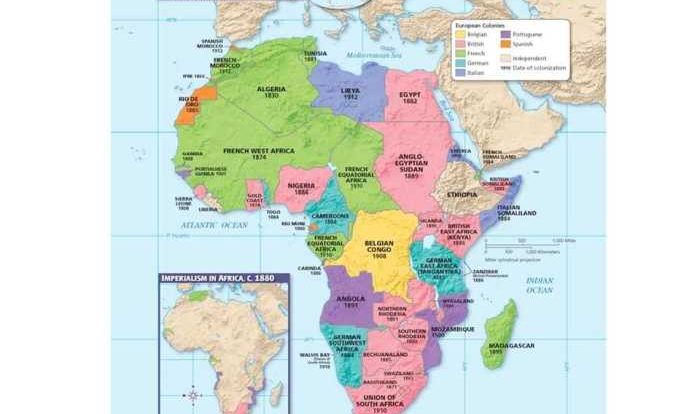Unit 8: topic 8.5 decolonization/independence movements of the 20th century – Unit 8: Topic 8.5, Decolonization and Independence Movements of the 20th Century, delves into the profound transformations that reshaped the global political landscape during the 20th century. This topic examines the factors that fueled decolonization movements, the diverse methods employed by colonized nations to achieve independence, and the multifaceted impacts of decolonization on both a global and local scale.
As we embark on this exploration, we will encounter the complexities of power dynamics, the struggles for self-determination, and the enduring legacies of colonialism. Through detailed case studies, we will gain insights into the strategies and sacrifices that shaped the course of independence movements.
Furthermore, we will analyze the challenges and opportunities that emerged for newly independent nations, as well as the cultural and social transformations that accompanied decolonization.
Decolonization/Independence Movements of the 20th Century: Unit 8: Topic 8.5 Decolonization/independence Movements Of The 20th Century
The 20th century witnessed a surge in decolonization movements as colonized nations sought to gain independence from European powers. These movements were driven by a complex interplay of factors, including political, economic, and social grievances.
Decolonization Movements: Causes and Motivations
The rise of decolonization movements can be attributed to several key factors:
- Post-World War I disillusionment:The horrors of the war led many to question the legitimacy of European colonialism.
- Rise of nationalism:The growth of national consciousness and the desire for self-determination inspired people to challenge colonial rule.
- Economic exploitation:Colonized nations resented the economic exploitation and resource extraction by European powers.
- Political repression:Colonial governments often suppressed political dissent and limited the rights of colonized people.
Individuals like Mahatma Gandhi in India, Kwame Nkrumah in Ghana, and Ho Chi Minh in Vietnam played pivotal roles in leading decolonization movements.
Methods of Decolonization
Colonized nations employed various methods to achieve independence:
- Armed resistance:Some movements, such as the Algerian National Liberation Front, resorted to armed struggle against colonial powers.
- Nonviolent protests:Mahatma Gandhi’s nonviolent resistance movement in India proved highly effective in achieving independence.
- Negotiations:Some colonies, like India and Pakistan, gained independence through negotiations with their former rulers.
Each method had its advantages and disadvantages, depending on the specific circumstances of each colony.
Independence Movements: Case Studies
Key independence movements of the 20th century include:
- Indian Independence Movement:Led by Mahatma Gandhi, the movement achieved independence from British rule in 1947.
- Algerian War of Independence:A violent struggle against French colonialism that lasted from 1954 to 1962.
- Vietnamese Independence Movement:Led by Ho Chi Minh, the movement fought against French and later American forces to achieve independence in 1975.
| Independence Movement | Leader | Method | Outcome |
|---|---|---|---|
| Indian Independence Movement | Mahatma Gandhi | Nonviolent resistance | Independence from British rule in 1947 |
| Algerian War of Independence | Ahmed Ben Bella | Armed resistance | Independence from French rule in 1962 |
| Vietnamese Independence Movement | Ho Chi Minh | Armed resistance | Independence from French and American rule in 1975 |
Impact of Decolonization on Global Politics
Decolonization reshaped the global political landscape:
- End of European empires:The collapse of colonial empires led to the emergence of numerous new independent nations.
- Rise of the Global South:Newly independent nations played a significant role in shaping international affairs, forming organizations like the Non-Aligned Movement.
- Cold War tensions:Decolonization created new opportunities for superpower rivalry, as both the United States and the Soviet Union sought to influence newly independent nations.
Cultural and Social Impacts of Decolonization, Unit 8: topic 8.5 decolonization/independence movements of the 20th century
Decolonization brought about significant cultural and social transformations:
- Establishment of national identities:Newly independent nations sought to define their own unique identities and cultures.
- Educational reforms:Decolonized nations reformed their educational systems to reflect their own histories and values.
- Artistic expression:Decolonization inspired new forms of artistic expression that celebrated cultural heritage and challenged colonial narratives.
Key Questions Answered
What were the primary causes of decolonization movements in the 20th century?
The rise of nationalism, the impact of World War I and World War II, the spread of anti-colonial ideologies, and the growing economic and political strength of colonized nations were key factors that contributed to the decolonization movements.
What were the different methods used by colonized nations to achieve independence?
Colonized nations employed a range of methods to achieve independence, including armed resistance, nonviolent protests, negotiations, and a combination of these approaches.
What were the key challenges faced by newly independent nations?
Newly independent nations faced challenges such as establishing stable governments, building national economies, addressing social and economic inequalities, and navigating complex international relations.

